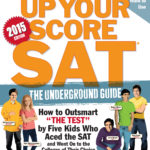With all the buzz surrounding Gabrielle Zevin’s Young Jane Young, we decided we’d like to get to know the author a little better. Read Zevin’s personal essay on her messy introduction to politics below.
Buy the Book
Amazon | B&N | Indiebound | Workman

The Suit
When I was sixteen, I ran for student council president. I had worked on student government for two years, and I was certain it was my time. I could already feel the plastic gavel in my hand. I could imagine myself pulling into the student council president’s parking space, which was the closest one to the school except for the principal’s. I could already see “Student Council President” typed out on my college resume. I could visualize my framed picture on the wall of the student government classroom alongside the previous presidents of Spanish River High School—mainly, but not always, young men. The future was palpable; my victory, an inevitability.
My best friend, Courtney, and I made posters by hand, using three-inch-thick markers and fluorescent pink and green paper. We came up with creative slogans like “Vote for Gab” and “Zevin for President.” Posters were very important and not important at all. Important, because what else advertised you to be president? Unimportant, because nothing stuck to the walls of my high school. At least not for very long. The walls were made of cinderblock, and the only permitted affixing agent was masking tape.
In the weeks leading up to the election, people thought I was something of a front-runner. There wasn’t scientific polling, per se—for all the good scientific polling seems to do (I’m looking at you, 2016). But, if you asked around, the few people who were paying attention might have said, “Yeah, sure, I’m voting for whatshername.” It was also in my favor that the two other front-runners were Maggie Bishop and Troy Hartman, who were best friends and whose social circles overlapped, thus canceling each other out with the electorate.
The most important event of any student council election is speeches day. I don’t remember that much of what I wrote—it had vague ideas about change and making a difference and something about the reallocation of pep rally funds. However, I remember very specifically what I wore.
I had decided to wear a man’s suit. In my lifetime, I had never seen a president who didn’t wear a man’s suit, and so I didn’t even think I was being particularly bold. It seemed obvious to me: if you wanted to be president, you wore a man’s suit.
I borrowed a white dress shirt and a suit jacket from my dad. I wore a nearly matching pair of wool pants that belonged to my mom. From my dad’s closet, I also chose the necktie that seemed the most presidential—it had navy and crimson stripes.
As I walked into the school gymnasium, I began to wonder if the suit had been a mistake. I saw my competitors on the dais, and none of them were wearing suits. Maggie, a floral dress. Troy, the ubiquitous 90s-era Dockers and blue shirt and tie, like someone who worked in a Blockbuster. I considered the crowd. There were about two thousand people out there. I couldn’t see my friends, but I did see a boy pointing at me. Even from a distance, his pointed finger did not seem to indicate “Yes, her! She’s the one I’m voting for!”
The speeches were given in alphabetical order. The only one I remember is Maggie’s, which was not so much a speech as a dramatic recitation. She wore a brown paper bag over her head and pretended that she was too shy to remove the bag unless the crowd cheered for her, like a student council Tinker Bell flying for applause. My sixteen-year-old self found this to be incredibly gimmicky and crass. Where were her ideas? What was she going to do to improve the school? However, her speech was met with a warm reception—they wanted Maggie to get her head out of that paper bag! Later, I would find out that Maggie had “borrowed” the speech from one she had heard at the state student council meet-up. Her gimmick wasn’t even her gimmick.
And then, it was my turn. I grabbed my note cards and made my way to the podium. Just before I got there, someone—a male voice—screamed the word dyke. And then he shouted it again for good measure, just in case I hadn’t heard. DYKE!
Now, to be clear, I didn’t care and don’t care if someone thinks I am a lesbian. I don’t subscribe to simplistic notions of gender or sexual preference, in theory or personally.
In that moment, though, I felt irritated with the boy’s ignorance. There’s a difference between cross-dressing and lesbianism! I thought. And, by the way, I’m not actually cross-dressing because this is what presidents wear! I remember wondering if I should explain these distinctions to the two thousand students who were in attendance on speeches day.
In that moment, I also knew that I had lost the election. No matter what I did, I would not be able to win that crowd back to my favor. In a 90s-era South Florida public high school, a girl dressed in a suit did not become student council president.
I gave my speech.
After the assembly, a friend’s mother came up to me and said, “That totally would have played in New York.” This proved meager comfort. I hadn’t been trying to do something that would “play in New York.” I had been trying to win a student council presidency in Boca Raton, Florida.
We voted the next day, and by that afternoon, I learned that I hadn’t even made the runoff, which would be between Troy and Maggie. Ultimately, Troy won. The paper bag could take Maggie Bishop only so far. (Troy ended up getting impeached. In a fit of Clinton-era squishiness, he was caught cheating . . . on a Spanish test!)
Because of my service to the school and my failed presidential run, I was appointed student council parliamentarian, the equivalent of receiving an ambassadorship to a minor island nation. Despite hitting the student council glass ceiling, I was accepted to Harvard in the fall. My freshman year, I lived in John F. Kennedy’s dorm room in Weld Hall. I never ran for office again.
I hadn’t thought about that election for many years—not until I started writing Young Jane Young. The novel is about a young woman named Aviva Grossman, who imagines having a brilliant career in politics but instead finds herself disgraced. Young Jane Young is about all the traps a woman in politics can fall into that her male counterpart never even has to consider. A man puts on a suit and a tie and an American flag pin, and that’s the end of the story. He is a politician. A female politician’s appearance is always a disputed territory, a matter of discussion.
While writing the book, I began to wonder what would have happened if I had won that election. Would I have run for more and higher offices? Would I have become a politician instead of a novelist? Would I have even tried to become president myself?
But I don’t think so. It is unimaginably hard to do a thing if you have never seen it done, and for a woman coming of age in the mid-90s, there were relatively few examples of American female politicians. I knew what a political wife looked like, but what does a woman who becomes president herself look like? I know she doesn’t wear a man’s suit, but does she always have to wear a pantsuit? Can she wear a pretty dress? Can she have long hair? Or ethnic hair? Can she be Jewish? Does she have to believe in God? Can she be Asian? Or mixed race? Does she have to be married? Does she have to have children? Can she be a “dyke”?
We still haven’t seen it, so we still don’t know.





No Comments